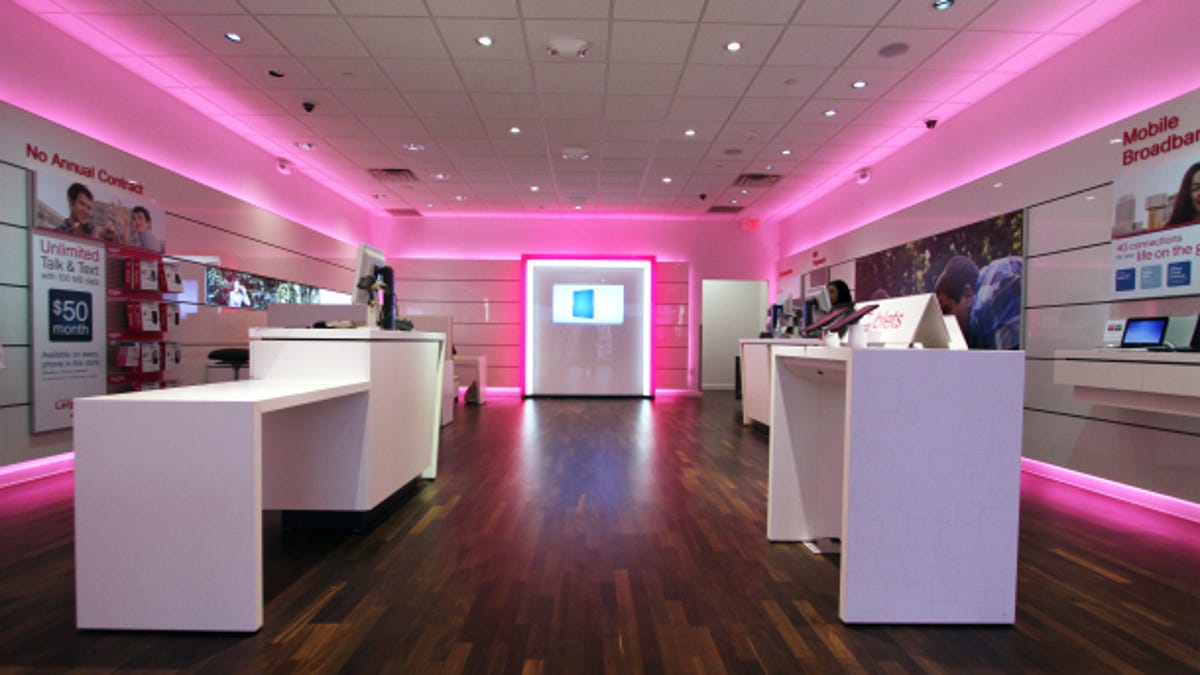T-Mobile: Today's 4G LTE is good, but ours will be great
T-Mobile Chief Technology Officer Neville Ray tells CNET why the MetroPCS deal will give its network a turbo boost.

T-Mobile USA may be behind its rivals when it comes to 4G LTE, but that doesn't mean it's mincing words about its ambitions.
AT&T and Verizon Wireless may be able to boast of a super-fast wireless connection now, but T-Mobile believes it can one-up both of them when it finally gets its LTE network rollout going next year.
"LTE today is good, but LTE tomorrow can be great," Ray said in an interview with CNET today. "That's the opportunity we hope to secure and differentiate ourselves with."
The key to T-Mobile's success: its recently unveiled plans to merge with MetroPCS, adding the prepaid carrier's spectrum, which conveniently sits in many of T-Mobile's key cities, to its own position. The extra capacity will allow for higher speeds, wider capacity for traffic, and overall better service, Ray said.
It's a marked reversal of rhetoric for the company, which just a year ago complained to the government that it was spectrum starved and lacked the resources to go at it alone, making the case that AT&T should swallow up the carrier.
But after a break-up fee that included spectrum and a roaming agreement worth $1 billion, parent Deutsche Telekom recommitting resources to the unit, and the recently struck deal with MetroPCS, T-Mobile is had a decidedly more optimistic perspective as it attempts to turn itself around.
T-Mobile is well behind its competitors when its comes to LTE. Verizon Wireless will cover 417 markets by next week, while AT&T and Sprint Nextel are both underway in their own deployments. T-Mobile earlier this year embarked upon a $4 billion plan to upgrade its network's HSPA+ coverage, which it calls "4G," and move to 4G LTE next year.
Ray, however, believes MetroPCS's spectrum position will effectively double the capacity and provide download and upload speeds that surpass the other carriers. Besides Verizon, which just completed a deal to acquire spectrum from the cable providers, the rest of the competition doesn't have the spectrum to match, which means lower speeds and quality of service.
Ray gave no timing on when that will happen. T-Mobile plans to reach 200 million people with LTE by the end of next year, although that estimate doesn't include the spectrum from MetroPCS. T-Mobile later confirmed that the doubling of capacity would start in 2014 with completion of the roll-out by 2015.
For example, T-Mobile and MetroPCS's combined spectrum position in New York exceeds that of every carrier, with Verizon being the closest, Ray said.
"This deal puits us in a position to jump ahead," Ray said. "It'll be in a position that will be tough to match."
Representatives from AT&T and Verizon declined to comment.
The superior service is what Ray believes will allow for a smooth transition when T-Mobile and MetroPCS merge. Some critics believe Sprint's various prepaid arms may be able to scoop up some stray customers left hanging from the deal. But Ray believes MetroPCS customers will be attracted to the nationwide network and improved coverage and phone selection.
Ray, however, didn't comment on T-Mobile's plans for pricing, and whether the carrier would offer plans that matched MetroPCS's rate.
It's the aggressive push to get customers off of MetroPCS's network and on to T-Mobile that have executives from both companies confident that this wouldn't be a repeat of the disastrous integration effort between Sprint and Nextel. In that case, Ray said, Nextel customers were used to a key service, the walkie-talkie feature, that Sprint couldn't replicate. T-Mobile offers all of the services MetroPCS has, and more, he said.
T-Mobile plans to shut down the MetroPCS CDMA network by 2015, decommissioning 90 percent of its cell sites. But it plans to keep 6,000 distributed antenna systems used to improved coverage inside buildings, turning those networks to ensure compatibility with HSPA+ and LTE, he said.
Until the deal closes, T-Mobile is largely relying on its HSPA+ service to keep customers in the fold. While the carrier continues to lose its most lucrative contract subscribers, it is making up for it with growth in its prepaid business.
In particular, the company recently started a campaign to bring unlocked iPhones on to its network. T-Mobile is one of the few carriers that doesn't sell the iPhone itself, but it has made itself accessible to consumers looking to switch. The new
He added that T-Mobile's planned network deployment uses compatible bands of spectrum as AT&T and Verizon, allowing for even more phones to be moved over to T-Mobile over time.
If the performance of its network lives up to Ray's claims, it could be an attractive offer.

